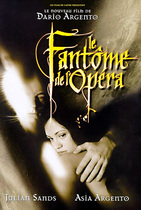Our editor-in-chief Nate Yapp is proud to have contributed to the new book Hidden Horror: A Celebration of 101 Underrated and Overlooked Fright Flicks, edited by Aaron Christensen. Another contributors include Anthony Timpone, B.J. Colangelo, Dave Alexander, Classic-Horror.com's own Robert C. Ring and John W. Bowen. Pick up a copy today from Amazon.com!
The Trick
The second of two essays related to the production process of They Only Come Out at Night.
The trick is to pretend you know what the Hell you're doing until you reach that final, and ultimately delicious moment when all the people around you study you for weakness. It's the nerves that give in first and you find yourself shaking, unable to even hold your cigarette. Then that terrible stuttering kicks in and you're kicking the door looking for a way out or at least a coherent sentence to follow the maddening questions. The questions! The questions! Too many of them to count. Somebody shoves the clapboard in your face and calls out a scene number, a take number. Somebody tells you that you have to sit down and look at the monitor because it looks better on a picture tube than on an LCD screen. You practically force the word out of your lungs: "Action!"
I haven't even sat down yet. Every time I try to sit down, I have to get up again and I don't know why. All of my actors tell me I'm incredibly organized. Probably because they saw everything written down in neat little typed tables and columns. Probably because every other director they've worked with had everything handwritten in notebooks or worse, post-it notes. As I write this, shooting is less than a night's sleep away. Tonight I keep saying to myself (in a cleverly lyrical way, I might add) "no compromises, no compromises". This is it. This is what it all comes down to.
The past few weeks were filled with development. More and more I begin to see the screenplay as nothing more than a blueprint. Thinking the blanks and gaps were neatly smoothed over by rehearsal after rehearsal, a layering process had started, and improvisation was welcome. I think as long as you have your story and a few well-chosen lines, you can fill in the gaps with improvisation, a wonderful tool that unfortunately, more often than not, is overused. I feel more at ease discussing my cast and crew. I worked with Rika Daniel on a feature I wrote and directed titled The Angel of Death, a pedestrian, experimental horror film that suffered from a lack of the tools for technology so prominently used today. Editing was also a crutch on which I rested. I fell into a trap of loving absolutely everything I shot, and I intended not to cut too deep into the narrative. The film was way too long and was justly ridiculed, yet, there was a spark of promise in it. I didn't fully learn anything until The Tell-Tale Heart, which taught me to be economical in story so that I could expand my ideas in editing. Rika was patient and understanding, not the kind of qualities you usually find in actors, but she seemed to have a sense of empathy, and one of the great things about her is her almost-immediate comprehension of any ridiculous concept I may have in mind.
Joe MacQuarrie (who plays Rika's devoted husband, Frankie) came to me at an audition for the role of Bobby in The Tell-Tale Heart. At the time I thought he was a little too good for the role as he had that great built in grin, that toughness, that instinct. I like to mix it up a little, give roles to actors they wouldn't normally be considered for. Scott Van Eerde had also auditioned for a role in The Tell-Tale Heart, but he just didn't look the part for me. I had learned to always, at least, consider many of the actors for future projects and developments. That way you do not have to go through the audition process all over again.
Shooting began in earnest on April 21st, scheduled for weekends so that everyone (including myself) would be available. The sets were dressed, the lights were turned on, and the lenses cleaned. I had realized a long time ago that the world simply did not exist, but for that small portion which appears on the opposite side of a camera lens. This is why you put everything you have into that tiny segment of your own world, light it up, bring down your exposure, add some color and it becomes another place. Of course, when you aren't looking, things begin to fall apart. At the time I am writing this, Scott Malley walks up to me and tells me the lights are starting to fall off the ceiling. Better go get some more gaffer tape.







